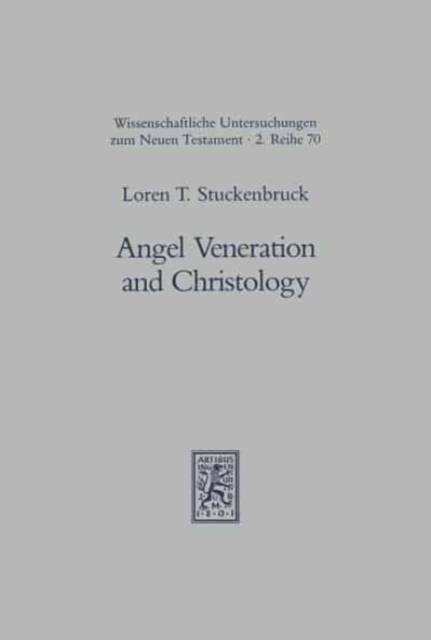
- Afhalen na 1 uur in een winkel met voorraad
- Gratis thuislevering in België vanaf € 30
- Ruim aanbod met 7 miljoen producten
- Afhalen na 1 uur in een winkel met voorraad
- Gratis thuislevering in België vanaf € 30
- Ruim aanbod met 7 miljoen producten
Zoeken
Angel Veneration and Christology
A Study in Early Judaism and in the Christology of the Apocalypse of John
Loren T Stuckenbruck
€ 119,95
+ 239 punten
Uitvoering
Omschrijving
In what ways did developing attitudes toward angelic figures in early Jewish circles contribute to christological thought in Early Christianity? Given a recently revived interest in mediator figures from Greco-Roman antiquity, the author explores this question by focusing on the interrelated issues of angel veneration and monotheistic belief.
The study is primarily based on traditio-historical analyses of New Testament texts (Galatians 3-4; Colossians 2; Hebrews 1-2; Revelation) and of early Jewish and Jewish-Christian epigraphic, apocalyptic, and merkabah-related materials.
The author argues that those who either assert or deny the existence of 'angel worship'in Early Judaism are often predisposed by a theological concern to establish a continuity or discontinuity between the worship of Christ by Christians and their religious-historical environment.
The study is primarily based on traditio-historical analyses of New Testament texts (Galatians 3-4; Colossians 2; Hebrews 1-2; Revelation) and of early Jewish and Jewish-Christian epigraphic, apocalyptic, and merkabah-related materials.
The author argues that those who either assert or deny the existence of 'angel worship'in Early Judaism are often predisposed by a theological concern to establish a continuity or discontinuity between the worship of Christ by Christians and their religious-historical environment.
Specificaties
Betrokkenen
- Auteur(s):
- Uitgeverij:
Inhoud
- Aantal bladzijden:
- 348
- Taal:
- Engels
- Reeks:
- Reeksnummer:
- nr. 70
Eigenschappen
- Productcode (EAN):
- 9783161463037
- Verschijningsdatum:
- 31/12/1995
- Uitvoering:
- Paperback
- Formaat:
- Trade paperback (VS)
- Afmetingen:
- 153 mm x 229 mm
- Gewicht:
- 557 g

Alleen bij Standaard Boekhandel
+ 239 punten op je klantenkaart van Standaard Boekhandel
Beoordelingen
We publiceren alleen reviews die voldoen aan de voorwaarden voor reviews. Bekijk onze voorwaarden voor reviews.











